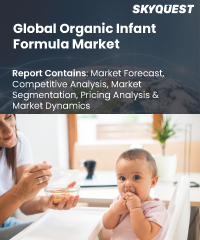
Report ID: SQMIG30I2284

Report ID:
SQMIG30I2284 |
Region:
Global |
Published Date: March, 2024
Pages:
198
|
Tables:
64 |
Figures:
75
North America held the largest share, accounting for 36% of the overall market. The growth in this region can be attributed to various factors, such as negative attitudes toward breastfeeding, a high level of women's participation in household responsibilities, which leaves them with limited time for breastfeeding, inadequate workplace setups or supportive environments for breastfeeding, high disposable incomes, and a lack of awareness regarding the benefits of breastfeeding.
Asia-Pacific is expected to be the fastest-growing segment during the forecast period. This growth can be attributed to rapid urbanization, higher fertility rates compared to western countries, increasing disposable incomes due to growing economic prosperity, western influences, strengthening retail infrastructure, and the presence of expanding market players facilitated by ease of doing business.
Our industry expert will work with you to provide you with customized data in a short amount of time.
REQUEST FREE CUSTOMIZATIONWant to customize this report? This report can be personalized according to your needs. Our analysts and industry experts will work directly with you to understand your requirements and provide you with customized data in a short amount of time. We offer $1000 worth of FREE customization at the time of purchase.

Report ID: SQMIG30I2284